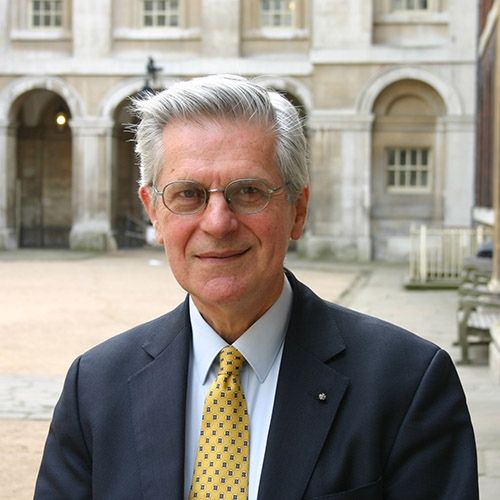COP30 and Sustainable Climate Resilience

Entrepreneurial Collective Responses to a Shared Global Challenge
Brazil's concept of Mutirão derives from the practices of its indigenous people who work together as a community to tackle shared tasks for the common good, such as constructing a building or an activity from which all might benefit. Cooperation sometimes accomplishes what could not be achieved by individuals or a family acting alone. It often relates to the natural world which indigenous peoples and Indian ancient wisdom treats with great respect, rather than abuse and over-exploit to the detriment of eco-systems and biodiversity.
Currents, winds and rivers cross national borders. Greenhouse gases and pollution produced in one place can adversely affect people elsewhere. Once used, finite or scarce resources may not be available to others and future generations. Global eco-systems are fragile. The COP30 presidency has drawn upon the concept of Mutirão to articulate a wider vision of Global Mutirão and a worldwide mobilization against climate change. Many of challenges facing countries and their enterprises now require whole of society and international responses.
The UN climate change conference COP 30 begins a week after IOD's London Global Convention on Corporate Governance and Sustainability. Progress in reducing greenhouse gas emissions at COP30 will be challenging given a reinvigorated fossil fuel sector and the growth ambitions of governments and companies. A sixth round of global UN talks recently failed to reach agreement on a treaty to end plastic pollution, with some 100 states favouring a curb on plastic production, while oil producing states favoured a focus on its recycling.
Enduring and Multiple Challenges
The global business environment is uncertain, unpredictable and volatile. Boards face inter-related environmental, geopolitical and technological challenges. Humanity's survival in the face of multiple existential threats is problematic. It requires collaboration and collective responses in a fragmented and polarised world. Future governance arrangements should enable organisations to become more resilient and better able to cope with changing pressures and requirements, including combinations of inter-related global risks and existential threats.
While responding to geopolitical developments and short-term pressures, boards must not lose sight of existential threats, including a pressing need for climate action to be discussed at COP30. Global greenhouse gas emissions and average global temperatures have continued to rise on a planet with insufficient resources to accommodate the combined growth aspirations of companies and countries. The WMO identified 151 unprecedented extreme weather events in 2024, and record numbers of people were displaced by natural disasters.
The frequency and intensity of extreme heat events have risen sharply. Approximately half the global population suffers adverse consequences of high temperatures. These can include heatstroke, dehydration, kidney dysfunction, and neurological disorders, impacting longer-term health and economic security. Higher temperatures can also lead to more excess deaths and disruption of health and transport systems. Impacts of global warming, such as shrinking ice sheets, are clearly visible. Glaciers are melting faster than ever recorded.
The COP30 presidency has drawn upon the concept of Mutirão to articulate a wider vision of Global Mutirão and a worldwide mobilization against climate change.
Consequences of Climate Change
Vulnerable habitats continue to suffer from collective human activities and existential threats such as climate change. Examples include last year's mass Great Barrier Reef coral bleaching event. Extreme weather events resulting from global warming can also reduce community resilience. Indirect impacts include contributing to antimicrobial resistance and particulate air pollution which is the most significant factor reducing life expectancy. The average person loses two years of expected life because of air quality being worse than WHO guidelines.
Rising global temperatures will on average also reduce the world's capacity to produce food from most staple crops, even after accounting for economic development and adaptation by farmers, by 120 calories per person per day, or 4.4 percent of current daily consumption with every additional degree C of global warming. Multiple data sets on global emissions and their consequences suggest there are only three years left to achieve the Paris agreement target to limit global warming to 1.5 degrees C, which seems unlikely on current trends.
The disruptive effects of climate change and consequences of extreme weather events accumulate. Major coastal cities around the world are sinking, some at an alarming rate, often because of groundwater extraction. This is increasing the risk of inundation because of rising sea levels. Certain mega cities, financial centres, areas of hitherto prime real estate, and significant balance sheet values are at risk. More extreme and potentially material weather impacts and climate change risks may soon become uninsurable.
Corporate and Country Responses
Major companies such as BP have switched focus from renewables back to fossil fuels, following the US election of climate change denying President Trump. There has been a resurgence of prospecting for fossil fuels and their extraction. Many entities that generate negative externalities are on a roll. Fossil fuel companies are influential in many countries. They have been a major obstacle to faster progress towards net zero and are now emboldened by the actions of an unpredictable President Trump who ignores scientific evidence.
The Trump regime has systematically removed or censured references to climate change and other environmental constraints from government websites, supressed warning reports and cut back or dismantled teams responsible for related research, alerts, responses and public protection. It has also championed AI and encouraged the growth of data centres upon which the use of AI depends, which boosts demand for energy and the water their cooling requires. Light touch regulation avoids the safeguards found elsewhere, such as in the EU.
Various governments and companies have backtracked on past net-zero commitments. Longstanding positions have been quickly abandoned, leaving ESG investors and other stakeholders wondering what certain companies stand for. Some key decision makers choose to ignore mounting evidence of existential threats. The delaying tactics of fossil fuel companies and lobbies continue to frustrate effective collective action. As a result of their actions and other vested interests, responses are too little too late to combat climate change.
Multiple data sets on global emissions and their consequences suggest there are only three years left to achieve the Paris agreement target to limit global warming to 1.5° Celsius, which seems unlikely on current trends.
Ethical Dilemmas and Board Leadership
Ethics and a moral compass may sometimes seem out of place in the contemporary world in which individuals and organisations seek advantage and are prepared to ignore unprovoked aggression and ride roughshod over those who urge caution and restraint and warn of unintended consequences. Views of what is ethical sometimes diverge, divide, evolve, polarise or vary according to context. An ethical stance can be challenging to maintain in a transactional era in which pragmatism may have to accommodate relative power realities.
Going with the flow, succumbing to bravado and hype, abdicating or avoiding responsibility, ignoring consequences, uncomfortable realities and emerging limits, and not exercising critical thinking could prove fatal for humanity. Some boards lose sight of longer-term trends, looming existential threats and fundamental realities. Balancing the differing and sometimes contending demands of a greater diversity of expectations, interests, preferences and requirements has become more of a challenge, especially as they change and events evolve.
Whether ESG is seen as a source of competitive advantage, or as a cost and regulatory burden, varies across jurisdictions. In the US shareholder support for environmental and social aspects of ESG have recently waned. The Council of Europe Convention on the Protection of the Environment through Criminal Law is the first international legally binding instrument to address environmental crime, covering a broad range of criminal acts that aggravate climate change, pollution and biodiversity loss. Vested interests will oppose its use.
Working With Like-minded Collaborators
Despite ESG investment criteria and the rhetoric of ESG, negative externalities persist, and current collective corporate and other human activities and current lifestyles continue to be unsustainable. How can a focus on ESG, sustainability and addressing climate change be maintained when issues are multiplying and becoming more inter-related, time and resources are limited, and more business leaders are running out of bandwidth and experiencing stress? If global collaboration is elusive, could a trade agreement catalyse bilateral cooperation?
More collaborative and collective responses to common challenges and shared global risks and existential threats are required. However, aligning investor expectations with the needs of employees, partners, customers, suppliers, communities, and environmental sustainability is complex and difficult. At times, overloaded directors may feel that their businesses cannot make a difference. Maybe they could through the recent Indo-UK trade agreement and Vision 2035 Indo-UK strategic partnership, with the 2025 London Global Convention approaching.
After three years of negotiations, the Indo-UK trade agreement is reducing or removing tariff and other barriers and improving market access. It also encourages bilateral investments, collaboration and joint ventures. Whether or not a business is already operating in India or the UK, now is a good time to look at both the details of the agreement and India's prospects. India is the world's most populous country and its fastest growing major economy. India's emissions impact global warming, but it accounts for 2% of UK exports and 3% of imports.
New Collaboration Opportunities
Whereas China has an aging population set to decline, the average age in India is under 30 years. Indebtedness is relatively low and falling as a proportion of GDP. Major infrastructure investments are underway. India has over a billion smartphone users and a third of the world's STEM graduates. Its diversity and prospects form a strategic opportunity that would benefit from longer-term commitment. India is also especially vulnerable to climate change. Could its resilience be enhanced and climate change tackled through lndo-UK collaboration?

The Indo-UK freer trade agreement opens new opportunities for enterprise, innovation and entrepreneurship. The two economies are complementary, with companies in both countries at the cutting edge. The UK has world class universities. Across India there are businesses with global ambitions that would benefit from services of the City of London. Approaching 2 million people of Indian origin live in the UK. The 2025 London Global Convention provides an opportunity to visit, connect and discuss possibilities, including bilateral climate action.
Embracing Bilateral Mutirão
Many boards seem constrained by imaginary prison bars and strait jackets. They debate by how much to increase or reduce activities, or speed up or slow them down, rather than imagine and create. Businesses often have unprecedented opportunities to do things differently. They could offer alternatives while they are still feasible. They could do enough to provide sufficient time for effective collective responses and necessary innovations to emerge before further fragmentation, polarisation and triggering of tipping points occurs.
Purpose and priorities, how the freer trade opportunity is used, and implications, impacts and consequences are critical. We have a common and shared interest in survival, and with existential challenges come unprecedented opportunities to imagine, explore, collaborate and innovate. Indian and UK enterprises could create new options and choices, tackle negative externalities, and address challenges such as climate change. They could collaborate to tackle obstacles and barriers to required collective responses to global risks and existential threats.
New joint ventures could offer alternatives, including simpler, healthier, fulfilling and less stressful lifestyles in harmony with the natural world. Various more resilient, sustainable and inclusive post-industrial futures are possible that could suit local requirements and conditions. The 2025 London Global Convention on Corporate Governance and Sustainability provides a pre- COP30 opportunity for directors to share insights, make or renew connections, refresh their thinking and discuss what might be beneficial, desirable, feasible and sought after.
Author

Prof. Colin Coulson-Thomas
Director-General of IOD India for UK and Europe operations
Prof. (Dr) Colin Coulson-Thomas, President of the Institute of Management Services and Director-General of IOD India for UK and Europe operations. He has advised directors and boards in over 40 countries.
Owned by: Institute of Directors, India
Disclaimer: The opinions expressed in the articles/ stories are the personal opinions of the author. IOD/ Editor is not responsible for the accuracy, completeness, suitability, or validity of any information in those articles. The information, facts or opinions expressed in the articles/ speeches do not reflect the views of IOD/ Editor and IOD/ Editor does not assume any responsibility or liability for the same.

 Quick Links
Quick Links
 Connect us
Connect us




 Back to Home
Back to Home






























